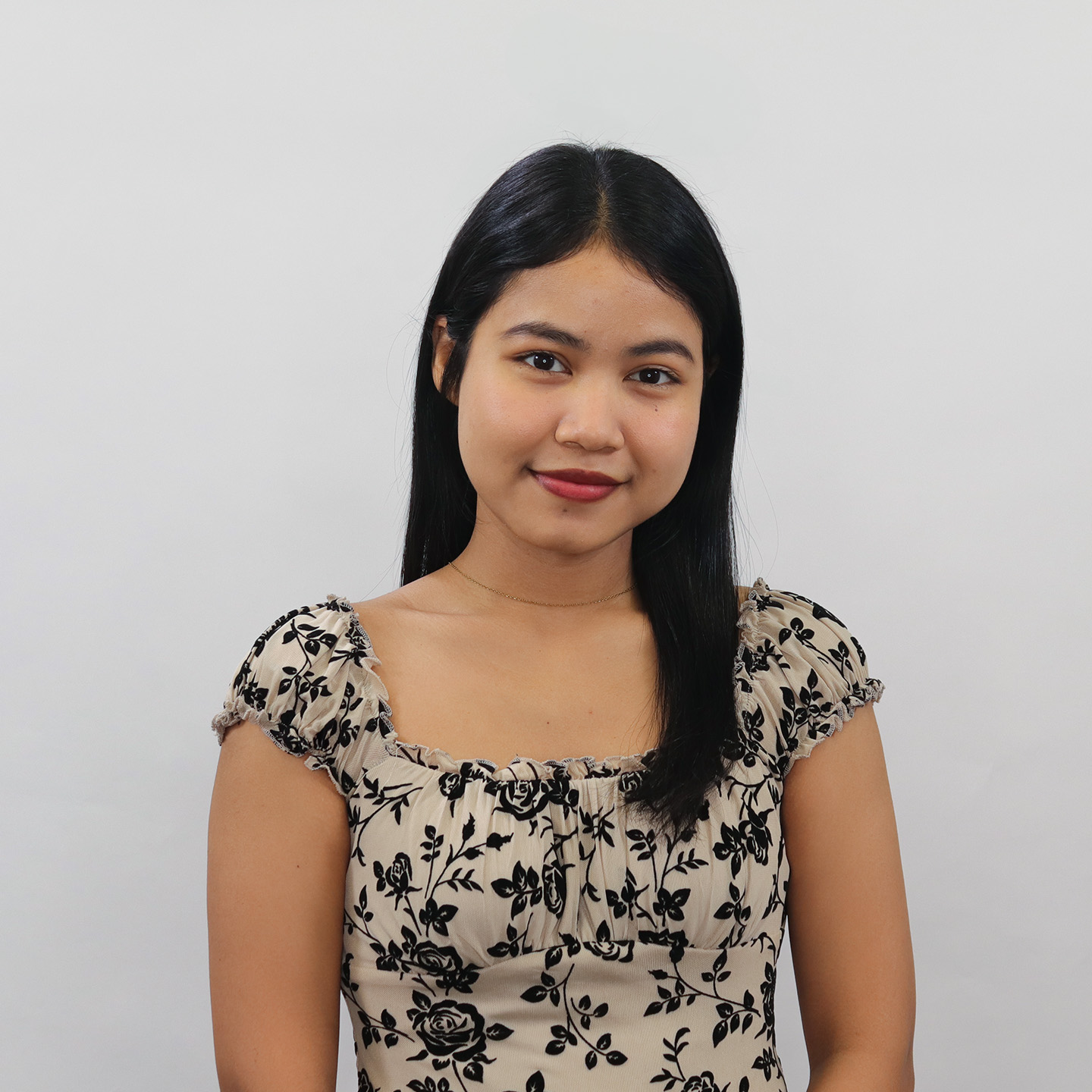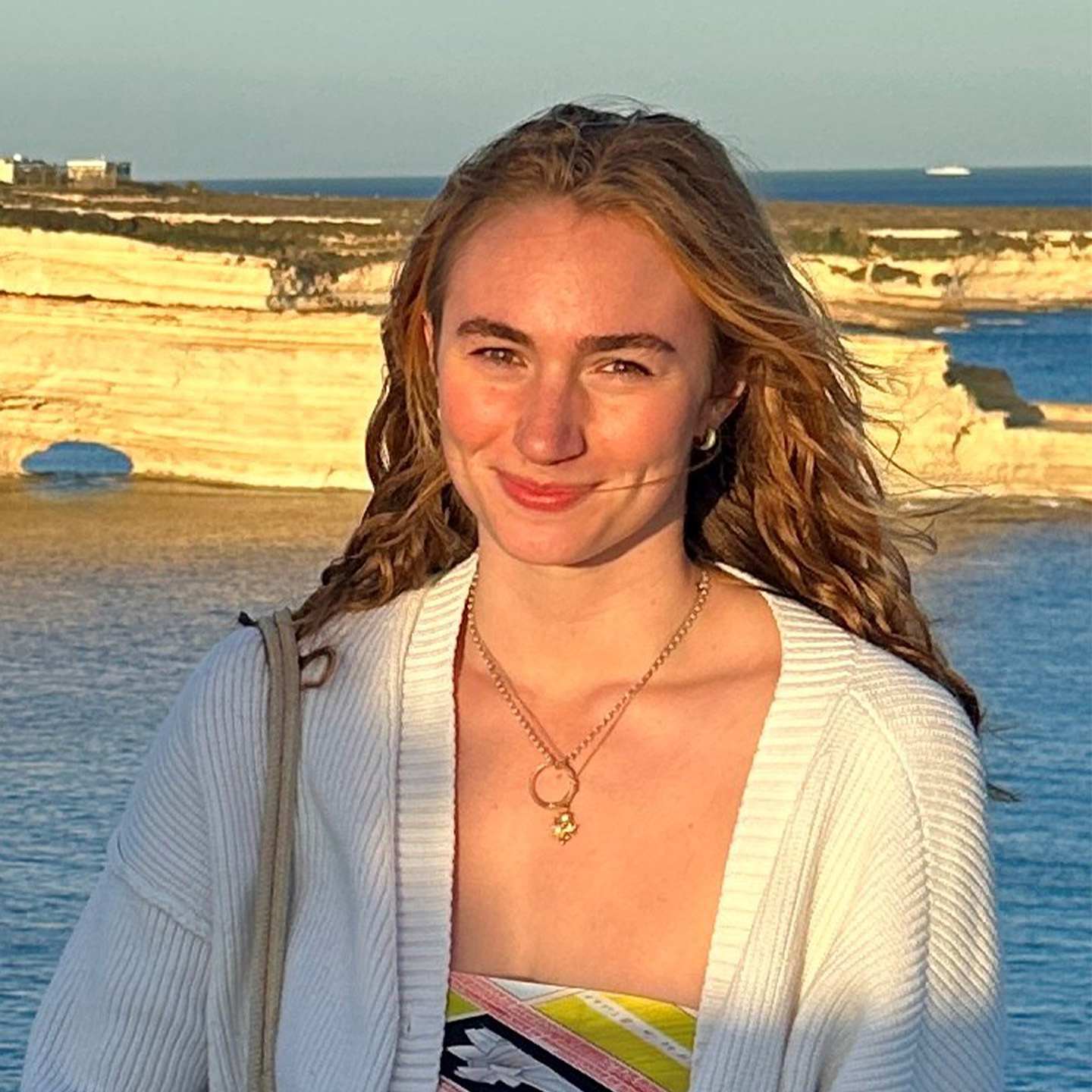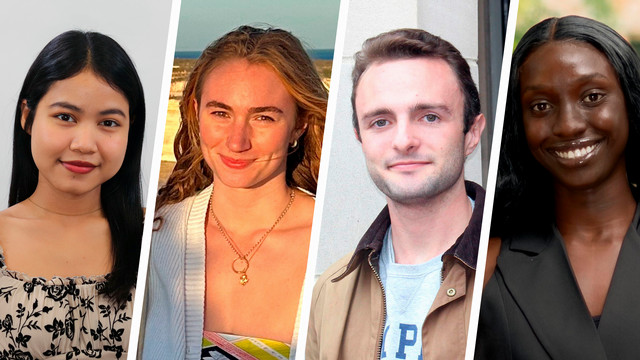UR graduates turn degrees into success
Alumni
Every year, thousands of graduates step into the job market with big dreams and fresh diplomas. From strategically networking to showcasing real-world skills, today’s graduates must find innovative ways to bridge the gap between the classroom and the workplace. It’s all about knowing how to leverage that hard-earned degree, turn academic knowledge into practical value, and land the job that kickstarts a lifelong career. A degree alone is not enough, but it’s a powerful starting point.
UR Now caught up with recent graduates who have positioned themselves as strong candidates and stepped confidently into the next phase of their professional journey.

Ratana Kin, Class of 2025
Bachelor of Science in Mathematical Economics, School of Arts and Sciences
Six months after graduation…
Two days after graduation, Ratana Kin was on a flight to Boston to visit a company that had offered her a job focused on business and law. But as her flight was landing, she received a call from Yes Energy with an offer that aligned more closely with her background and long-term interest in analytic and data-driven work.
The job included opportunities for growth across the company’s teams and offices in the U.S., New Zealand, and Europe, so Kin accepted the position as a forecasting analyst with Yes Energy’s Richmond office. “It caught me completely by surprise, but in the best way possible,” she said.
Kin said she’d applied to about 100 jobs, resulting in about 15 interviews. She had two rounds of interviews with Yes Energy — first a phone screening with HR and then with the forecasting manager of the U.S. team.
After going through the onboarding process and training, Kin said she feels fully supported in her new position. In her job, she maintains and enhances models that predict electricity demands across U.S. power markets for clients, including traders, power companies, and asset managers. Her forecasts help energy companies make informed decisions about pricing and grid reliability.
“It’s rewarding to see how I can use the data and statistical tools I studied in mathematical economics at Richmond to contribute to powering a more reliable and efficient energy system,” Kin said.
While at Richmond, the international student from Cambodia, completed two internships in her hometown. The first was a remote position the summer after her sophomore year, supported by the Spider Internship Fund, with Cape Town, South Africa-based educational consultant diiVe. Her second internship was on-site with CBRE Cambodia, an international real estate firm, the summer after her junior year.
“I attribute landing my position at Yes Energy to the combination of those internship experiences, where I accumulated professional client liaison, market research, decision-making, and data analytics experiences, and all the incredible support I received along the way,” Kin said, noting that her advisor and mentor, economics professor Saif Mehkari, played an integral part in her success.
It was Mehkari who forwarded the Yes Energy opening, sent in by a UR alum, to her class. “Having professors who truly care, combined with the many resources available on campus, makes a real difference, especially for international students. Even when we’re doing everything right, certain constraints can make the job search more challenging,” Kin said. “I was able to find a position that truly aligns with my interests and long-term goals.”

Ansleigh Gunter, Class of 2024
Bachelor of Science in Biology, School of Arts and Sciences
One year after graduation…
Ansleigh Gunter planned to go to graduate school after earning her bachelor's degree. While applying to graduate programs, she learned about the North American Language and Culture Assistants Program paid teaching positions, applied, and was chosen.
She deferred admission to the University of Michigan to spend a year working in Spain as a language assistant. “Teaching in Spain was the chance to try something different before committing to two more years of school,” she said.
Gunter left the U.S. about three months after graduation in 2024 to teach English at Colegio de Educación Infantil y Primaria Río Arlanzón, a bilingual public school for preschool- and elementary-aged children in Burgos' old town center in northern Spain.
“I think a lot of students graduating today are understandably motivated to get into the workforce and start earning a salary right away, which is great. But I also think there’s often a lot of pressure attached to that, like the need to have everything figured out immediately,” she said. “Living and working abroad offered me a valuable opportunity to step outside that pressure, challenge myself in new ways, and gain a broader perspective on life and work.”
Gunter taught her students about American traditions like March Madness, while they shared the excitement of local soccer rivalries between Atlético Bilbao and Real Sociedad in the nearby Basque Country. She enjoyed watching them grow and gain confidence throughout the school year.
“If there's one piece of advice I can give to students, it's to take advantage of programs like these while you have the chance,” she said.
After returning to the U.S. in July 2025, she began preparing for her reentrance into her academic pursuits. “Taking summer courses before my fall semester was intended as a warm-up for me. I knew grad school was not going to be a walk in the park and wanted to make sure I wasn't wasting any time getting reacclimated to school after a year off,” she said.
Gunter, who majored in biology and minored in environmental studies while at Richmond, is now in her first semester in Michigan’s School for Environment and Sustainability. She is pursuing a master’s degree in ecosystem science and management, with a focus on conservation ecology. Her dream is to work as a conservation scientist in the National Park Service.
She credits biology professor Priscilla Erickson and staff in the Office of Sustainability for helping her gain field research experience as an undergraduate that will make a difference in her graduate program. “Without mentors like these, I wouldn't be the scientist, student, or person I am today,” she said.
She also looks back fondly on her year abroad. “Living and working in Spain made me a more adaptable and open-minded person,” Gunter said. “Being immersed in a different culture pushed me out of my comfort zone. It helped me develop a stronger sense of independence. Professionally, I gained a more global perspective on collaboration and problem-solving, which has influenced how I approach teamwork and decision-making.”

